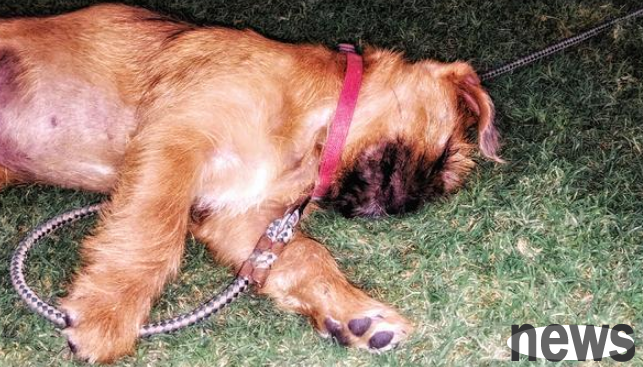Urinary incontinence of dogs: Causes, diagnosis and prevention
Dogs urinate inadvertently at home. This seemingly ordinary phenomenon hides many possible reasons behind it. We generally believe that unless it is a special situation, dogs usually choose to excrete while out, rather than at home. But sometimes, we find that dogs urinate accidentally, which is called "urinary incontinence". This is not the same as the enuresis of a dog when excited, afraid or nervous. There are many causes of urinary incontinence, the most common cause is that dogs after sterilization are insufficient secretion of estrogen and testosterone. In addition, urinary tract infections, bladder stones, bladder muscle weakness, congenital defects, nerve damage, prostate diseases, drug side effects, and some other diseases can all lead to urinary incontinence.
When we find that the dog has urinary incontinence problems, we should take him to the hospital for examination as soon as possible. Taking urine samples at home is the best choice, but it may be difficult to actually operate. Doctors will analyze the urine and may perform bladder X-rays to determine the specific cause of urinary incontinence.
The key to treating urinary incontinence lies in treating the cause. If urinary incontinence is caused by urinary tract infection, antibiotics are necessary. Other reasons require other medications or surgical treatment. In addition, dietary adjustment is also part of the treatment.
Although urinary incontinence caused by many causes cannot be effectively prevented, we can take some measures to reduce the chance of the disease. For example, for female dogs, premature sterilization may increase the risk of urinary incontinence, so it is best to discuss in detail with your doctor and weigh the pros and cons before sterilization. Keeping external genitals clean also helps reduce the risk of urinary tract infection. Bathe your dog regularly and make sure that the environment in which he sleeps is clean and tidy.

Puppies of certain breeds are more likely to have urinary incontinence problems, such as German Shepherds, Rottweilers, British Springer Spaniels, etc. In addition, female dogs with a history of reproductive history, obese dogs, dogs with a history of urinary tract infection and bladder stones, and dogs with back injuries or surgery to affect bladder nerves are also more likely to develop urinary incontinence.
To prevent urinary incontinence, we need to pay attention to the health of dogs, especially those at high risk groups who are prone to illness. Early detection and corresponding preventive measures can help dogs stay away from the troubles of urinary incontinence and improve their quality of life.
In general, understanding the causes and preventive measures of urinary incontinence is crucial for dog health. As owners, we need to always pay attention to the behavioral changes of dogs. Once abnormalities are found, we should immediately seek professional medical help. Only in this way can we take better care of our pets and ensure their health and happiness.














